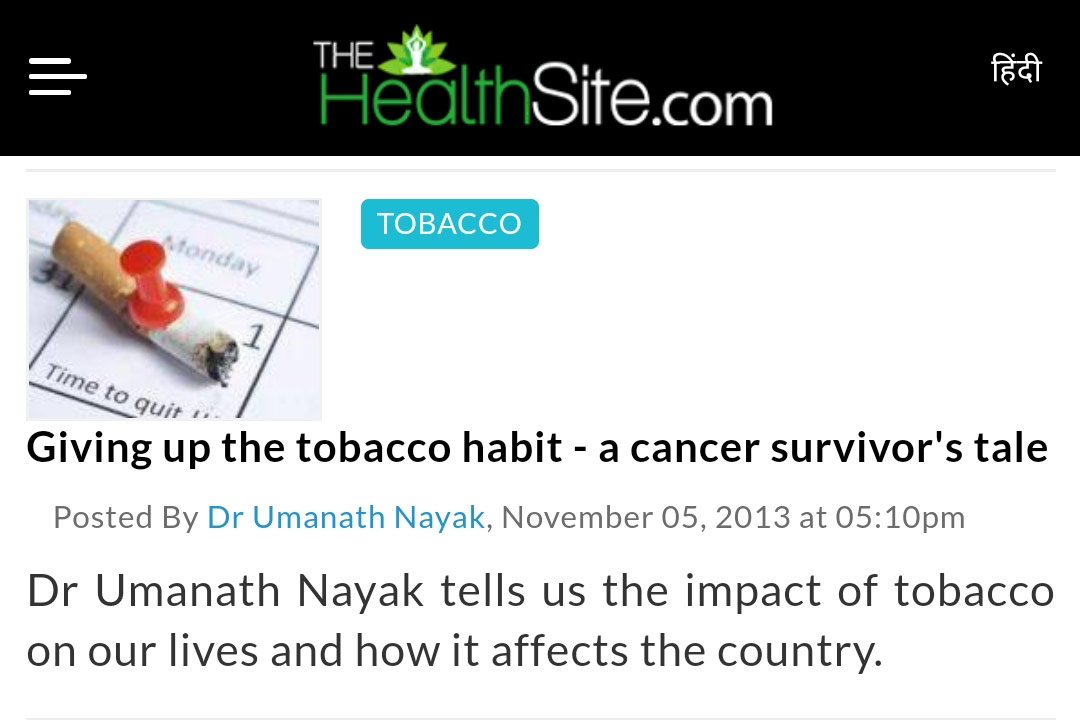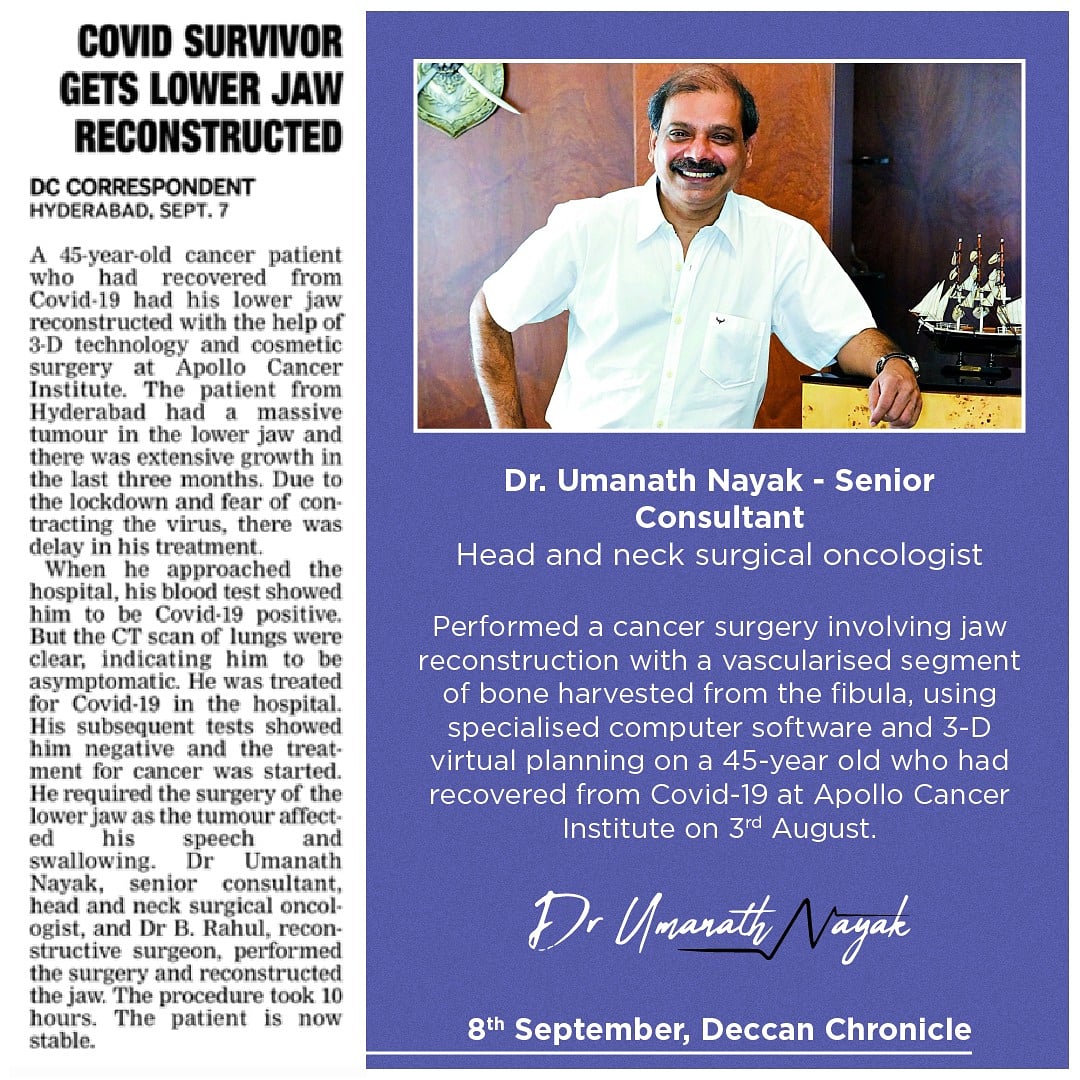Oral (mouth) cancer is a very common cancer in our country. This cancer is associated with the habit of chewing tobacco in different forms as well as smoking and drinking alcohol. Awareness and regular screening of the population at risk (tobacco users) can identify these cancers at an early stage when surgery can result in a high rate of cure with minimal morbidity and better functional outcomes. Screening can also aid in identifying pre-cancerous conditions and instituting measures to reverse them before they can progress to frank cancer. Along with the examination and evaluation, education and counseling to break the habit of tobacco usage also form an important part of the screening program. Dr. Umanath Nayak one among the best oral cancer surgeons in India, has cured a large number of patients who have suffered from oral cancer.
Warning signs:
- An ulcer or sore in the mouth or lips which persists beyond 3 weeks
- Swelling or growth on the tongue which may or may not be associated with pain and/or difficulty in chewing or swallowing
- Persisting ulcer or swelling over the jaw associated with loosening of teeth
- Blood in sputum or saliva which persists despite the treatment of any associated gum infection
- A painless, progressive lump in the neck
Pre-cancerous conditions associated with chronic tobacco use:
- Leukoplakia: A white patch in the mouth which does not go away when rubbed
- Erythroplakia: A red velvety patch which may be associated with pain or burning while eating
- Oral submucous fibrosis: Diffuse blanching/pallor and thickening of the mucosa (lining) of the mouth associated with intolerance to spicy food, loss of elasticity of the cheeks and restricted mouth opening.
Treatment:
Early stages of oral cancer (stage 1 and 2) are highly curable by surgery. The cancer is removed along with a margin of normal tissue around it. Sometimes a margin of the jaw bone and/or lymph glands in the neck may also need to be removed depending on the location of cancer. In early cancer surgery results in minimal morbidity and overall functional and cosmetic outcomes are excellent. Following surgery, the excised specimen is sent for histopathological examination (detailed biopsy) and if there are adverse features such as involvement of the lymph glands by cancer cells, radiation may be given post-operatively after 4-6 weeks to reduce the risks of a relapse. On the other hand, surgery for advanced stages (stage 3 and 4) is more difficult and challenging, and overall cures may also be less. Surgical removal of cancer can also result in functional and cosmetic disturbances, but with the latest available reconstructive methods, the outcomes are acceptable. Almost all of these patients require post-operative radiotherapy and in certain cases chemotherapy. For more details, book an appointment and meet Dr. Umanath Nayak, the Best Oral Cancer Surgeon in India.
To book an appointment you may contact at
Email : drumanathknayak@gmail.com or
Call : 91-9391369493



